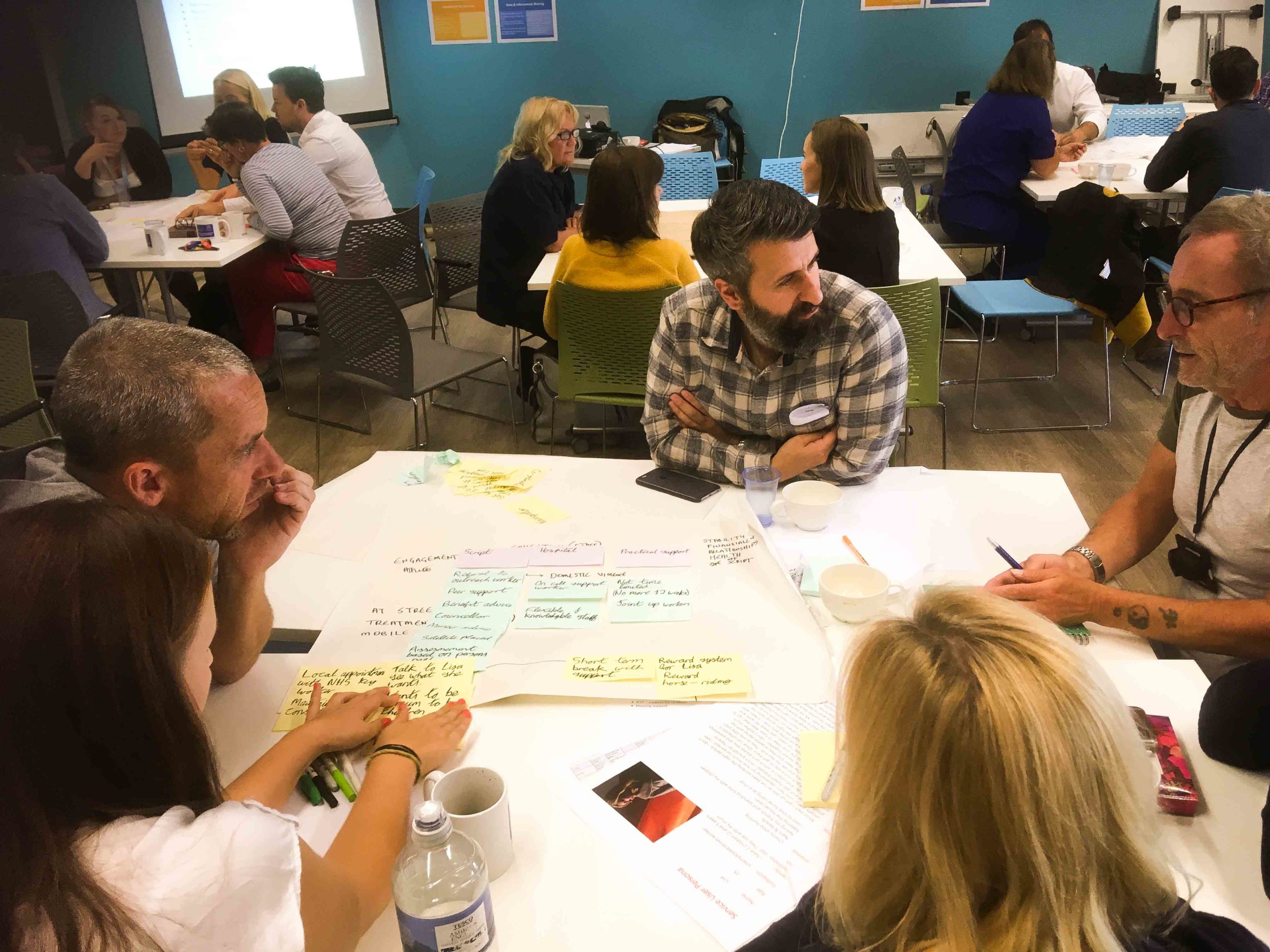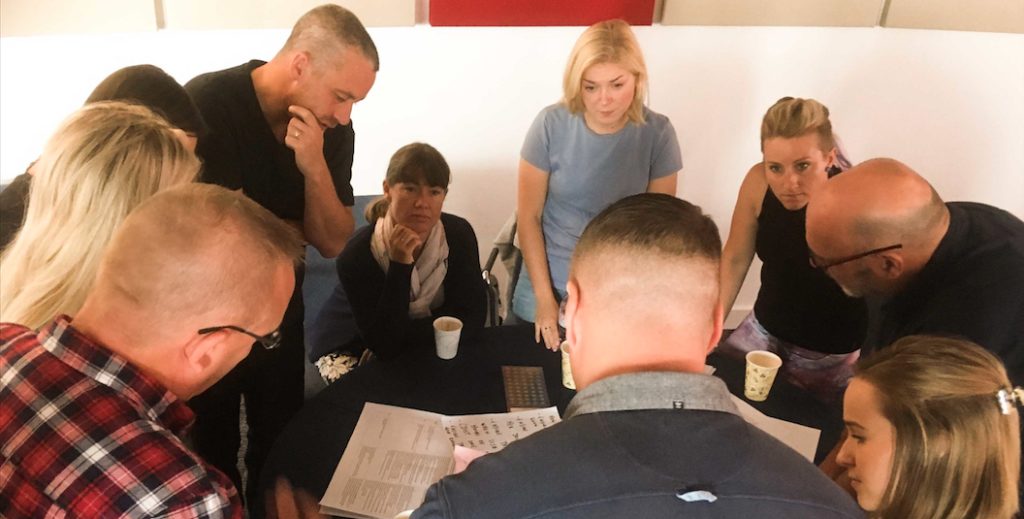
Cardiff and Vale UHB – Rethinking Drugs and Alcohol Services

Delivering service design workshops to rethink systems at Cardiff and Vale UHB
The Cardiff and Vale Area Planning Board were in the process of re-commissioning Drugs and Alcohol Services across the local authority.
The commissioning team were taking an innovative and bold approach to developing the 2020 Commissioning Strategy by completely rethinking how the system works through working with service providers and people who use the services.
ProMo Cymru were appointed to deliver a set of Service Design workshops in collaboration with Ruth Jordan, Head of Improvement and Implementation, Cardiff and Vale University Health Board.
Our approach
Using a combined methodology taken from Design Thinking and Alliancing, we developed and delivered a bespoke set of 5 workshops. These were attended by over 50 professionals and people who use the services.
We used a process that involved defining the challenge, reviewing the evidence and data, mapping out people’s journeys and creative thinking. Through this we were able to uncover problems, find new solutions and reach a consensus of what was needed to change.
Key to the process was ensuring that the issues of real people were heard. People who used the services gave us their thoughts. Hearing their voices in depth was particularly important to ensure that we got to the route of what really matters. We also chose to work primarily with front line workers who could provide a clear perspective on all the issues and concerns related to the service.
One significant comment from a service provider was that the current system is ‘setting people up to fail’. People with drugs and alcohol problems often lead chaotic lives yet are expected to fit into a structured system of care.
“We are forcing structure on chaos”
– Substance Misuse, Front Line Worker

Outcomes
The main themes that arose from the workshops were that the new system should focus on:
- Holistic assessment that focuses on a person’s whole wellbeing.
- Instant and accessible information and early support.
- Substance misuse services provided at generic community facilities, such as hubs, GP practices and colleges.
- Addressing the causes and tackling stigma.
One of the strongest ideas was to use system navigators and peer support to help people find their way seamlessly through the system. There was agreement that, to the outside world, it should look and feel like one joined up, flexible support pathway, tailored to support people’s individual needs.
The outcomes from the workshops will be used to inform the commissioning strategy.
